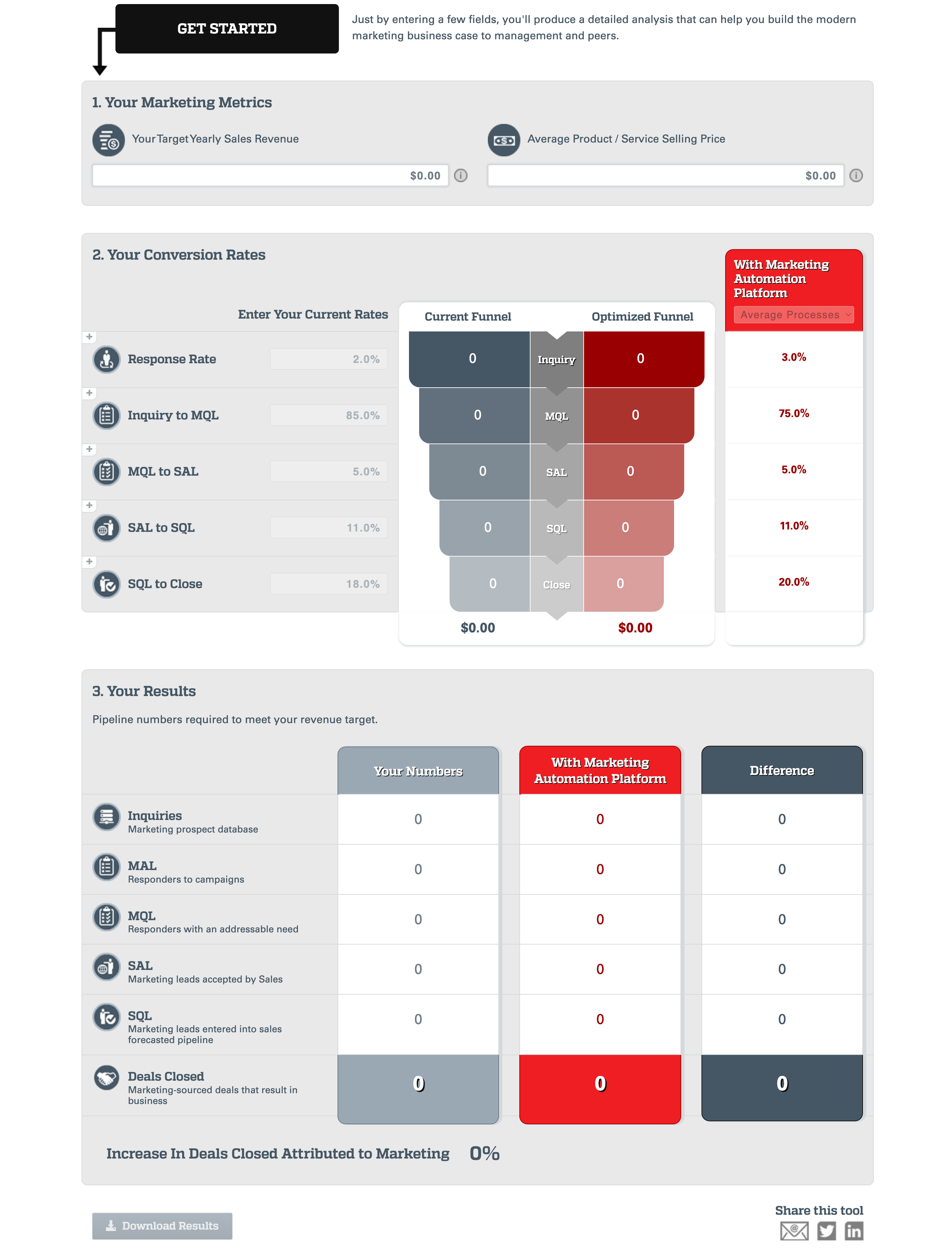On average, about 51% of companies are using marketing automation as of today. The rapid increase in numbers only shows how businesses have started to understand the need for marketing automation technologies and the need for optimized processes to be active where their customer is and keep them engaged proactively.
But when it comes to measuring how effective marketing automation has been for a business, there are often very limited or no answers.
The effectiveness of a marketing automation platform is difficult to measure, time-consuming and also subject to how it is being put to use. For something that is a considerable investment and eventually gets integrated into various processes, the difficulty to measure its effectiveness may not sit too well with everyone.
Especially when it is an e-Commerce business, you are required to keep up with a dynamic market both in terms of changing product preferences to how you reach out to ideal buyers. This process may require dynamic investments.
But there’s a way out – measuring the qualitative and quantitative effectiveness of a marketing automation platform.
- Calculating the ROI of your marketing automation platform
- How to double your ROI from marketing automation platforms
- Is a Marketing Automation Platform for eCommerce really worth it?
- Conclusion
Calculating the ROI of your marketing automation platform
Qualitative
Let’s start with the unseen but prominent measures of the effectiveness of a marketing automation platform. These factors, too, should be accounted for while calculating the ROI from it.
-
- Time saving
The number one thing that you can look at or ‘feel’ the difference in, is the time you and the team save. You should be able to see a clear difference in the amount of time spent doing a set of tasks that you have automated using the platform vs what you did before manually. This may vary from how extensively you’re using the marketing automation platform.
For example – if it took 5 hours to follow up a customer base of 100 subscribers and update them about new offers on all the channels, now it takes you less than a minute and is handled on autopilot, that’s a success!
-
- Better personalization
As per E-consultancy, 93% of companies see an uplift in their conversion rates upon personalizing customer communication. Studies also show that 49% of customers make a purchase on receiving a personalized recommendation from a brand.
Imagine having to look into every consumer’s previous interactions and purchases and tailoring the communication on each channel manually. If you’re a growing business, it’s practically impossible. But if you have a marketing automation platform, you are able to do this at scale and hence deliver personalized shopping experiences at scale.
-
- Increased scalability
As an e-Commerce business, you have an opportunity to tap into international markets with different product offerings. But imagine having to communicate with customers at that scale manually. The time it takes to send out hand-operated emails and texts to your customers or follow-up on abandoned carts will stagger your ability to grow.
A marketing automation platform frees up your time from these aspects, automating personalized conversations. It is able to scale with your business, tackling even thousands of customers at any given time.
-
- Stay competitive
The e-Commerce industry is growing by the day; a typical consumer gets to choose from at least 10 brands when making a purchase. With marketing automation, you get to see all your data in one place, giving you a comprehensive view of your current performance.
But at the same time, it also helps you identify the changing preferences of consumers across different segments and lifecycles. This helps you plan ahead and adapt your campaigns on-the-go, remaining competitive by reducing the number of consumers that walk away from you to competitors.
-
- Ability to target customers across channels
e-Commerce is a fast-moving domain, and consumers are quick to change brands, owing to the 5000 ads they are exposed to every day. This makes it important for businesses to stay on top of their consumer’s minds, but that requires them to be present where they are, at the right time.
With a marketing automation platform, you will have the ability to communicate on multiple channels in tandem. You can automate various campaigns across email, SMS, WhatsApp, Messenger, PPC campaigns, web push notifications and more.
-
- Improved productivity
A marketing automation platform doesn’t just save time and make money for your eCommerce business, but also help you boost productivity. With repetitive tasks taken care of with smart automations, you get to tackle things that require a manual approach with more focus. This in turn, boosts your productivity, keeping your day-to-day tasks streamlined with no backlogs!
-
- Improved scheduling and organization
A good marketing automation platform enables you to schedule campaigns across multiple channels for an entire season. It gives you complete control over when you start a campaign and when you pause it, without having to manually look into it.
As an eCommerce business owner, this helps you remain consistent with your efforts and also keep things well-organized.
Quantitative
If you’re looking for concrete numbers, here are a few parameters that will help you calculate the ROI of your marketing automation platform.
-
- Improved marketing ROI
A marketing automation platform brings with it defined processes and accurate reporting across all fronts. This helps you measure your performance across various channels more accurately with a holistic view of what’s working and what’s not.
The ability to see your campaign performance on one dashboard enables you to optimize marketing efforts on-the-go, adapting to the changing consumer demographics and preferences, leading to higher ROI.
-
- Reduced staff costs
Marketing automation doesn’t just save you time. It also saves you on the resources you need to invest in to run different operations and processes for your eCommerce business.
For example, if it took 5 people to manage incoming customer queries on all channels before, a marketing automation platform should reduce the number. Since it has the ability to integrate with other tools like a CRM, it makes it easier for the support team to remain on top of conversations, saving time on moving from platform to platform.
-
- Increased revenue
With the ability to personalize your marketing campaigns across all stages of a customer lifecycle, a marketing automation platform unlocks many upsell and cross-sell opportunities. With higher personalization and proactive engagement, research shows that you can see an increase of 10-30% in your eCommerce revenue on average.
Not just that, a marketing automation platform will also let you see how different products and offers perform across various target customer segments. This can help you strategize better to improve the profits you drive in.
For example, Speero, Saudi’s largest marketplace for automotive aftersales, increased its revenue by 25% using a marketing automation platform. They used the tool’s capabilities to run targeted customer engagement campaigns through dynamic segmentation. Their approach also ensured timely and contextual customer communication throughout the funnel.
-
- Reduced cart abandonment
On average, more than 69% of online shoppers abandon carts. But with marketing automation, you can tap into this consumer intent and personalize your reminders across all channels with ease. In fact, you can also create a series of strategic follow-ups on different channels in tandem to get your message noticed.
So a quantitative measure of its effectiveness can be seen in terms of the increase in the number of abandoned carts recovered.
For example, Arata achieved a 13% cart recovery rate with marketing automation, using personalization at the core of their strategy. They were also able to proactively reduce drop-offs using the insights from the platform to create better shopping experiences.
-
- Improved customer experience
Personalized experiences lead to customers feeling cared for and appreciated. This in turn, helps you establish a stronger relationship with them right from the time they choose to engage with your brand.
When your customers are happy, you can see it both in terms of the number of repeat purchases and your CSAT/ NPS scores. So if you see an improvement in how consumers feel about your brand after bringing in a marketing automation platform, it’s a win!
-
- Increased customer lifetime value
As a result of an increase in customer satisfaction, you will also end up seeing a boost in your customer retention rate. Research shows that about 44% of consumers say they’ll likely choose the same brand if they personalize their experience and communicate proactively with more context.
For example, FirstCry, Asia’s largest online store for baby and kids products, was able to boost repeat purchases by 400% through marketing automation. The marketing automation platform enabled them to run hyper-personalized campaigns across all digital touchpoints, helping stay on top of their consumer’s minds.
-
- Better lead conversions
A Harvard Business Review study shows that you are 60 times more likely to convert a lead if you follow them up within 1 hour. But imagine responding to even a hundred leads manually – you’ll not just lose context of communication, but miss out on many conversations as they increase.
A marketing automation platform helps you follow-up with leads in a timely manner, leading to better lead engagement, segmentation and hence, conversions.
For example, Zivame, an online lingerie retailer, uses web push and web pop-ups through journeys set up using a marketing automation platform. This helped them increase conversions by a whopping 20%.
While the above are a good measure of your marketing automation platform ROI, covering all grounds, there are also tools available to do the same.
For instance, you can also use the Oracle marketing automation ROI calculator. Based on your yearly sales revenue target and average product selling price, it can give you a complete breakdown of the required conversion rates and pipeline numbers that your marketing automation platform should be able to help you achieve.

Source: Oracle
How to double your ROI from marketing automation platforms
There’s only one way to know whether a marketing automation platform is adding value to your business or not – having a well-defined strategy backing the efforts.
If you don’t know what you’re trying to solve with marketing automation, which processes in the company are going to be automated, which workflows will be set up, how the information will flow between various departments and how you’re going to put that information to use on the various fronts of your eCommerce business, you’re just going to end up winging it.
By winging it, you put yourself at the risk of losing hundreds or maybe even thousands of dollars invested in a marketing automation platform. Even if you’re not outright losing your resources, you’re probably not tapping into its full potential to generate the revenue you can on the investment made.
Here are a few things we recommend to ensure you get a good ROI from your marketing automation platform:
- Clearly Defined Needs: Before you even begin exploring marketing automation tools, make sure you have a list of things you want to make more efficient with the help of custom workflows and automations.
- Define your goals: After identifying your needs, make sure you also set clear goals and key performance indicators for each of the processes/ departments you intend using the marketing automation platform for.
- Create a documented strategy: Ensure you have documented how the marketing automation platform needs to be used or customized per department; this is to ensure a streamlined way of working even as your eCommerce business and team grows.
- Onboarding and training: As an eCommerce business, you need to build a culture wherein everyone is on board with marketing automation. You need to help them see the benefits of marketing automation across various functions, and how they can leverage it to do their job better.
- Regular audits: One of our most important tips to ensure that you are driving a good ROI from your marketing automation platform, is to audit your efforts regularly. You need to look into what’s working, what’s not and optimize how you approach that segment for better results.
- Optimize and improve: A marketing automation platform comes with a vast set of features and capabilities. You should be able to identify your business’s growing needs and learn how to tailor your use of the platform accordingly.
- Integrations with other tools: Using your marketing automation platform with smart integrations with other tools and technologies, such as your eCommerce CMS and CRM, can help enable a seamless flow of information between departments.
- Choosing the right platform: Your Marketing Automation Platform ROI is also dependent on the platform you choose for your business, the support they offer to set up workflows, the incurring costs that come with it and its ability to scale.
Is a Marketing Automation Platform for eCommerce really worth it?
The eCommerce industry has been rapidly growing owing to both digitization and the pandemic. But it’s also the increase in the expanse of the digital landscape that is leading to a much higher competition for businesses to tackle, to not just acquire, but also engage and retain their existing customers.
A marketing automation platform enables growing eCommerce businesses to tap into an omnichannel growth strategy, keeping contextual and personalized customer engagement at the heart of it.
Conclusion
By equipping businesses with smart automation, custom workflows and higher visibility into data from all digital touchpoints, a marketing automation platform helps strategic and sustainable growth of the brand even in highly competitive and volatile markets.
That’s exactly why leading brands across different direct-to-consumer industries, from luxury brands to automobiles, fashion and apparel, beauty and cosmetics, health and wellness and others, can be seen adding a powerful marketing automation platform to their technology stacks.
With an end goal of providing their customers a well-integrated shopping experience, eCommerce businesses are tapping into various capabilities and use cases that marketing automation platforms have to offer to stay ahead.
Utilize our Marketing Automation Stack to maximize your ROI, take a demo now!


































 Surya Panicker
Surya Panicker
 Dev Iyer
Dev Iyer
 Vanhishikha Bhargava
Vanhishikha Bhargava



